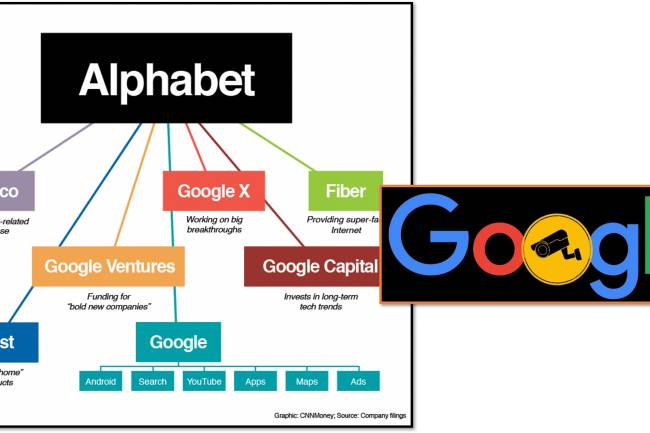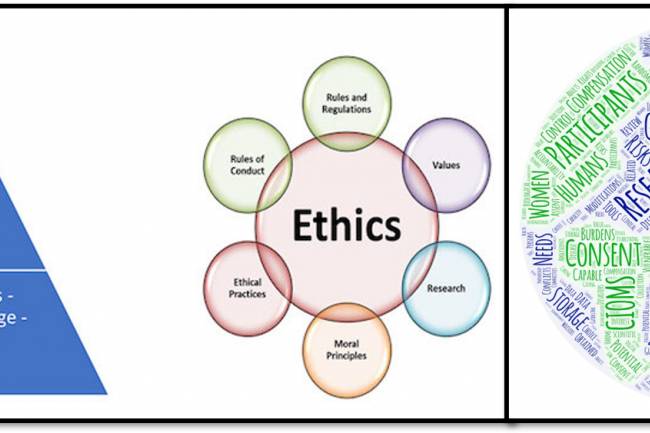
How To Achieve "Career Goals"
How To Achieve "Career Goals" If You Want
Achieving career goals requires a combination of clarity, planning, consistent action, and adaptability. Whether you're just starting out or trying to level up, here's a step-by-step guide to help you achieve these goals and make steady progress:
Table of Contents
How To Achieve "Career Goals" If You Want 1
1. Clearly define your career goals. 1
Short-Term Career Goals (1–3 years): 1
Mid-Term Career Goals (3–5 years): 1
Long-Term Career Goals (5+ years): 1
2. Break Down the Goal into Milestones. 2
3. Required Skills & Resources. 2
1. Project Management Fundamentals. 3
2. Project Management Certification. 3
4. Communication and Leadership. 3
6. Team Collaboration and Conflict Resolution. 4
Sample Weekly Learning Schedule (3-6 months) 4
1-hour online course on Mondays (PM basics) 4
6. Track progress and reflect. 8
7. Ask for feedback regularly. 8
8. Be consistent and flexible. 9
________________________________________________
1. Clearly define your career goals.
Clearly major career goals involves identifying what you want to achieve professionally and setting a roadmap to get there. Here’s a structured example of how to clearly define career goals:
Short-Term Career Goals (1–3 years):
- Gain relevant experience in my chosen field through entry-level positions or internships.
- Build strong foundational skills, such as communication, problem-solving, and technical expertise specific to the industry.
- Earn professional certifications or further education to enhance my qualifications and credibility.
- Establish a strong professional network by attending industry events and engaging on professional platforms like LinkedIn.
Mid-Term Career Goals (3–5 years):
- Advance to a higher-level role, such as a team leader, project manager, or specialist position within my field.
- Lead projects or initiatives that demonstrate leadership, innovation, and the ability to drive results.
- Continue developing professionally, staying up to date with industry trends and acquiring new skills or credentials as needed.
Long-Term Career Goals (5+ years):
- Secure a senior or executive-level position, such as department head, director, or C-suite role, depending on the industry.
- Contribute to strategic decision-making and help shape the future of the organization.
- Mentor junior professionals, giving back to the community and fostering the next generation of leaders.
- Possibly start my own business or consultancy, depending on market opportunities and personal interest.
2. Create an action plan
Definite! Here's a example action plan based on a general profession goal, let’s say:
Career Goal: "Become a Project Manager in the IT industry within 3 years."
1. Define the Goal
- Goal: Become a Project Manager in the IT industry
- Timeline: In 3 years
- Why: To lead teams, manage large-scale projects, and make a strategic impact
2. Break Down the Goal into Milestones
|
Timeline |
Milestone |
Details |
|
0–6 months |
Learn Project Management fundamentals |
Take courses (e.g., Coursera, Udemy), read PM books, shadow a PM |
|
6–12 months |
Gain PM experience |
Volunteer for project coordination tasks at work or in side projects |
|
12–18 months |
Earn a PM Certification |
Complete PMP®, CAPM®, or Scrum Master certification |
|
18–24 months |
Apply for PM or Assistant PM roles |
Tailor resume, network, and apply for internal or external PM roles |
|
24–36 months |
Secure a PM position |
Land a role and continue growing through hands-on experience and mentorship |
3. Required Skills & Resources
|
Skills to Develop |
Resources/Action Steps |
|
Project planning & scheduling |
Use tools like Microsoft Project, Asana, or Trello |
|
Communication & leadership |
Attend workshops, take soft skills training |
|
Agile & Scrum methodology |
Take online Agile courses, join Agile communities |
|
Time and risk management |
Read case studies, simulate planning exercises |
4. Build a Network
- Join LinkedIn groups for IT project managers
- Attend industry conferences or webinars (e.g., PMI, Tech Meetups)
- Connect with mentors or colleagues in PM roles for guidance
5. Measure Progress
- Set monthly check-ins to track completed tasks
- Log project experiences and reflect on learnings
- Review and update your resume every 6 months
3. Improve your skills.
To improve your skills and achieve your career goal (say, "becoming a project manager in the IT industry within 3 years"), you need to systematically develop technical and interpersonal skills.
1. Project Management Fundamentals
Why: Understand the fundamentals of managing a project from inception to closure.
In what way:
- Complete a course on project management fundamentals (e.g., Coursera, PMI.org).
- Study project management frameworks such as Waterfall, Agile, and Scrum.
2. Project Management Certification
Why: Increases credibility and opens up more job opportunities.
By what means:
- Start with a CAPM® (Certified Associate in Project Management) or Scrum Master.
- Work toward a PMP® (Project Management Professional) certification if you meet the requirements.
3. Tools and Software
Why: Project managers must be proficient in technology tools for tracking and collaboration.
Learning Tools:
- Trello, Asana, Jira (task tracking and agile boards)
- Microsoft Project, Smartsheet (Gantt charts and scheduling)
- Slack, Zoom, Microsoft Teams (communication tools)
4. Communication and Leadership
Why: Managing teams and stakeholders requires excellent interpersonal skills.
How to Improve:
- Join Toastmasters or take a communication skills course.
- Volunteer to lead meetings or team efforts in your current position.
- Practice active listening, negotiation, and feedback.
5. Time and Risk Management
Why: Projects often face unexpected delays or issues.
In what way to:
- Study the risk management framework.
- Use project simulation tools or real-life case studies to practice decision-making.
- Create mock project plans and practice risk identification and mitigation plans.
6. Team Collaboration and Conflict Resolution
Why: Effective project managers organize people the same way they organize tasks.
How:
- Learn conflict resolution techniques (e.g., win-win negotiation).
- Use team-building tools and strategies.
- Participate in cross-functional team projects.
Sample Weekly Learning Schedule (3-6 months)
Activity of the Day
1-hour online course on Mondays (PM basics)
- Practice using a project management tool (Trello/Jira) on Tuesday
- Read a PM case study or article on Wednesday
- Thursday: 30-minute training on leadership and communication
- Take a mock exam to prepare for certification on Friday.
- Consider progress or work on a mini-project over the weekend.
4. Network like a pro
- To network like a pro and achieve your goal (becoming a project manager in the IT industry), you need a strategic and consistent approach that generates meaningful connections and opens career doors.
Why networking is important.
- More than 70% of jobs are found through networking, not just online applications.
- Networking will help you gain insider information, guidance, and insight into project management roles.
10-Step Professional Networking Plan
1. Develop a strong personal brand.
Write a clear, goal-focused LinkedIn headline (e.g., “Aspiring IT Project Manager | Agile Motivator | Building Teams and Technology Together”).
Update your profile with a professional photo, summary, and project management-related skills.
2. Create a goal list.
- Identify:
- 10 companies you admire.
- 10 people in project manager or related positions
3. Professional associations (e.g., PMI, local technology groups)
- Three Join professional communities.
- Online:
- LinkedIn groups (e.g., "Project Management Institute Members")
- Reddit forums like r/project management or r/career orientation
- Offline:
- Local PMI chapter events
- Tech meetups or conferences (e.g., Agile Days, TechTalks)
4. Start the conversation (the right way)
- Use a simple message format:
- Hi [Name], I admire your career path at [Company]. I'm working toward a similar goal and would love to hear about your experience. Would you be open to a 10-minute chat?
- Always be polite, brief, and genuine.
5. Conduct informational interviews.
- Ask about them:
- Career path
- Challenges in the role
- Tips for someone starting out
- Take notes and send a thank-you message.
6. Price it.
- Share relevant articles or PM news with your network.
- Congratulate others on promotions, certifications, or project wins.
- Become the person people want in their professional circles.
7. Attend events with a purpose.
- Set a goal before you go (e.g., “meet 3 new people”).
- Prepare a short personal introduction or “elevator pitch.”
- Follow up with a connection within 48 hours (e.g., “It was a pleasure chatting with you at [event]; I’d love to stay in touch!”).
8. Post regularly on LinkedIn.
- Share:
- What are you education about project management?
- Tools you've tried (e.g., "Here's how I used Asana to plan a team project")
- Reflections on Agile or Leadership
9. Ask for referrals (wisely)
- Once the connection has warmed up (after several exchanges), say:
- I saw there's an opening at your company for a junior project manager. Would you like to recommend me?
10. Be consistent.
- Set a weekly goal: "Connect with 3 new people + comment on 2 posts."
- Use tools like Notion or Excel to keep track of contacts, notes, and follow-ups.
Example Elevator Pitch
Hi, I'm [your name]. I currently work in IT provision and am working toward certification as a project manager. I've been managing internal projects informally and am very focused on transitioning to a formal project manager role. I'm particularly interested in agile teams and cross-functional collaboration.
5. Find a mentor (or two)
- A mentor can:
- Offer guidance based on experience.
- Give feedback on your progress.
- Help you avoid common mistakes.
- You can search for mentors through:
- Work
- Industry groups
- Alumni networks etc. etc.
6. Track progress and reflect.
- Review your progress monthly or quarterly.
- Adjust goals or plans if needed: flexibility is key.
- Celebrate wins (even small ones): they will keep you motivated.
7. Ask for feedback regularly.
- Constructive feedback helps you grow faster.
- Ask your managers or colleagues, "What can I improve?"
- Be open and non-defensive.
- Take advice when appropriate.
8. Be consistent and flexible
- Establish daily/weekly habits (e.g., 1 hour of learning, 3 job applications per week).
- Stay motivated by reminding yourself why the goal is important.
- Don't let disappointments stop you—they're part of the journey.
9. Review and modify goals.
- Every 6 to 12 months, reevaluate your goals.
- Are they still comfortable?
- Adapt to new opportunities, priorities, or life changes.
Additional tips:
- Document your journey: Keep a journal or career spreadsheet.
- Build a strong personal brand: LinkedIn profile, portfolio, or blog.
- Stay healthy: Burnout will slow you down; balance is important.
________________________________________________



















